‘Luke Cage’ EP On Marvel Series’ Hip-Hop Pulse, The Power Of A Bulletproof Black Man & Exploding Twitter

SPOILER ALERT: This story contains details about Luke Cage Season 1.
Debuting at midnight tonight on Netflix, the first season of Luke Cage brings super strength, unbreakable skin and, according to Cheo Hodari Coker, some hip-hop attitude to the small screen. “It does have a bounce, and what I mean by that is the same way that there’s a vibe that comes from Nas’ Illmatic or vibe that comes from Mob Deep’s The Infamous,” the showrunner says of Marvel’s third series on the streaming service. “There’s a vibe and undercurrent to this show that has that pulse.”
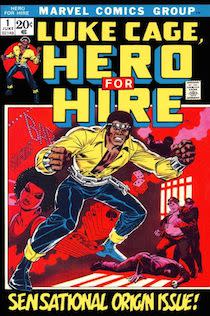
Having first appeared last year in the first season of Jessica Jones, the Mike Colter-portrayed Cage steps into his own spotlight this week starring in the first African-American-fronted superhero series in a time when gun violence and Black Lives Matter are on the front burner culturally. In the mix of that, the Luke Cage character tries to find his way through the streets of Harlem and his own storm to becoming a hero — even with his own hesitations and history, both on-screen and in the comics, where he was first introduced in 1972.
Executive produced by Coker, Charles Murray and Marvel’s Head of Television Jeph Loeb, Luke Cage also stars House Of Cards alum Mahershala Ali as villain Cornell “Cottonmouth” Stokes and Oscar nominee Alfre Woodard as Cottonmouth’s cousin and powerful Harlem politician. Having appeared in both Daredevil and Jessica Jones, Rosario Dawson’s Claire Temple is also a part of Luke Cage, along with Simone Missick (Detective Misty Knight), Theo Rossi (Shades) and Frank Whaley (Detective Rafael Scarfe).
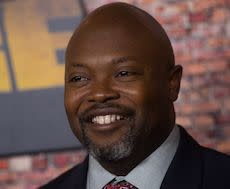
Before the 13-episode season’s New York City premiere last night, Coker spoke with me about the power of a bulletproof black man in America today, the show’s deep hip-hop foundations and the influence of both Harlem and The Lord Of The Rings director Peter Jackson. Hinting on where a second season could go, the former Ray Donovan producer also talked about his varied sources for the show, how Prince’s Sign Of The Times is like Netflix and how he wants Twitter to explode early Friday morning when the bingers hear a certain tune in the “Wu-Tangifiction of the Marvel Universe,” as Coker termed Luke Cage this summer at Comic-Con.
DEADLINE: At Comic-Con this year you said, “When I think about what’s going on in the world right now, the world is ready for a bulletproof black man.” Months ahead of the launch of Luke Cage, that statement really set the context for the series, but what was going through your mind when you said it and did you think it would have the impact it did?
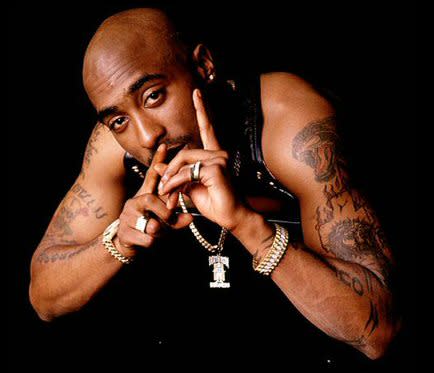
COKER: I wasn’t trying to be glib. I wasn’t trying to set up this whole thing. It was what I was thinking. The thing I thought about was all of the heroes that I’ve had, Martin Luther King, Malcolm X, Medgar Evers, Tupac Shakur, Christopher Wallace aka the Notorious BIG, Big L — all dead by gunfire. Particularly when you look at political figures and you think about that and you think about what it would mean when you’re melding these two worlds of hip-hop and superheroes – what if they were bulletproof?
DEADLINE: It’s a complete change of the American dynamic on the street level too…
COKER: Yes, the thing is 75%-90% of the murders that occur in black and Latino communities are solvable. Everybody knows who did it or somebody knows. The reason nobody talks is because snitches get stitches and people aren’t bulletproof. So when you introduce Luke Cage into that environment, how does the presence of a bulletproof black man change the ecosystem of a neighborhood? Not just in terms of the street-level crime. How do the cops react to someone like that? What are the ripple effects of doing that? That’s one of the things I wanted to explore on the show when you go back to what would happen if you actually had a bulletproof black man. What would that be?
So, even just seeing the imagery of Mike Colter walk down a hallway in a hoodie being shot numerous times and the bullets bouncing off of him. I don’t think any of us were thinking about the political connotations of that at first. But when you see the power of that image you realize that having a black person with super powers in this world, whether you mean for it to or not, has deeper implications. So, on one hand, yes, we know that the show explores those implications, but we’re not so obsessed with it that we’re saying this is the message. We’re doing this here. It just lives and breathes in its own way.
DEADLINE: And what is Luke Cage, as people will see it on September 30?
COKER: Really, the arc for the first season of Luke Cage is hero. How does one become a hero? What does one feel about being a hero? How does one live their life and eventually go through the Elizabeth Kubler-Ross stages of grief until the acceptance is fine, I’m a hero. This is what it is.
DEADLINE: Did you plan it out like that from the beginning?
COKER: Well, actually when we first started talking about the overall plot for the 13 episodes we realized that we were going to be the first Marvel show that was going to have an actual origin story. We also realized we were able to do it in a way that was natural. So the thing about it was that we had kind of plotted the first four episodes before we even started in the writers’ room, meaning that I had come up with the premise for the first four episodes because I had to write the first two.
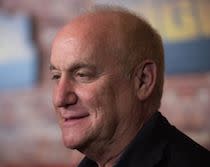
It was funny because initially those first four episodes, which were all I had in the beginning, were actually two episodes or three episodes. My initial notion was to have what happened at the end of Episode 2 be the end of Episode 1. Then what happened is Marvel’s Karim Zreik and Jeph said, “you need to slow it down a little bit.”
So, now it’s Unforgiven. You keep hearing what a badass Clint Eastwood is the whole movie but at first you see him as a pig farmer. So it was kind of the same thing with this. You keep building little moments of what Luke can do but he hasn’t really engaged yet.
DEADLINE: So, it’s the dual notion of both his acceptance and his powers for you?
COKER: That’s the thing. When you’re a black superhero you can’t erase the notion that you’re black. If you’re black living in the community and you want to change things, there are going to be things that happen. That’s true of anybody. I mean you could use celebrity as a similar metaphor.
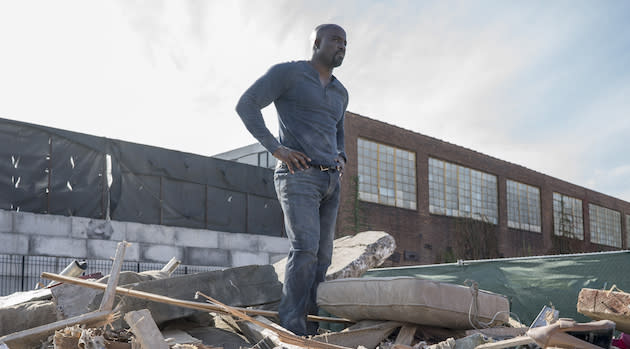
What Jeph Loeb always talks about is that Marvel characters, by and large, don’t ask for their powers. They feel burdened by their powers. Part of their whole makeup is accepting the fact that now they have these abilities, will they accept the responsibility that comes along with it? What does it mean to be a hero when you didn’t necessarily want to be a hero? That’s not just true of any black superhero, it’s true of anybody that you’ve ever seen in a Western. I mean it’s really a Western motif.
DEADLINE: With Luke’s old comic book partner Iron Fist the next Marvel and Netflix series to come, and then the team-up with him, Daredevil, Jessica Jones and Luke in The Defenders, is part of your responsibility in this first season be planting seeds in the greater Marvel Universe?
COKER: To some degree. Look, these shows have to exist on two different planes. On one plane they have to work as television shows and then they have to work as Marvel television shows, which is why there are hints to the Marvel world throughout. We are thankful for the Marvel Universe but we’re not beholden to the storylines in the Marvel Universe, meaning that we can get to these inevitable storylines and arcs at the time that they feel right rather than just translating the material directly from one medium to the next.
My whole thing was I didn’t want to be so reliant on the superpowers and the fact that it’s geeky and cool to just be the whole trick. I wanted the drama to be just as compelling as anything we were going to do with his powers so that when you melded both it gives you something that you really haven’t had before.
DEADLINE: Something we haven’t seen before is a big-budget superhero series or movie with an African-American lead — Luke Cage is breaking new ground there. Was that at the fore for you or something you had to put aside in putting together the show?
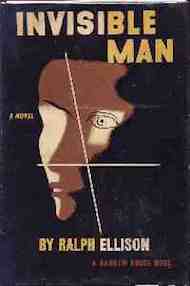
COKER: It’s like people talk about Black Lives Matter. If you think about black art, all black art, whether it’s Invisible Man or whether it’s James Baldwin, Langston Hughes, Zora Hurston, or Richard Wright, they all deal with elements of identity and trying to humanize our experience and our struggle in the world where people have been indifferent to who we are and what we are. It’s basically just saying that our lives have meaning. Artistically that’s always been discussed. I mean I know now it’s a hashtag and people have various feelings about it, but really if you look at all black art, even in hip-hop, it’s all about that I exist and these are my feelings and this is what I feel about the world. It’s always been an undercurrent.
You have to understand, I mean we wrote this series months before any of the stuff that’s currently in the headlines has happened, but the one thing that we focused on is identity.
DEADLINE: And that identity has a lot of influences, doesn’t it? With the heavy and specific use of music, especially 1990s hip-hop, having Ali Shaheed Muhammad of Tribe Called Quest working on the score, the tone of the photography of Gordon Parks in the opening, some original Shaft, to name a just few…
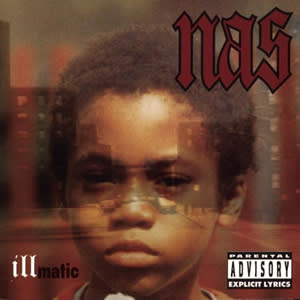
COKER: My whole thing about this show was like we have influences everywhere. So one of the things that’s really the cornerstone of ’90s hip-hop is sampling, so we have a lot of influences that we wear openly, like Tarantino’s been doing for years. In much the same way, yes, it’s an appreciation, but at the same time with the different elements that we’re putting together I think what makes it feel new is the fact that we’re showing you can be both. We’re showing that you can do Ralph Ellison at the same times as you’re doing Chester Himes.
We get to explore all these different notions in a way that is natural. What I mean by that is when I say that the show has a hip-hop attitude, 20 years ago all of a sudden people are bouncing their shoulders. Hip-hop attitude means it’s got to bounce. The show does have a pulse. It does have a bounce and what I mean by that is the same way that there’s a vibe that comes from Nas’ Illmatic or vibe that comes from Mob Deep’s The Infamous. There’s a vibe and undercurrent to this show that has that pulse.
DEADLINE: Was Harlem itself always meant to be a character unto itself in the series?
COKER: Harlem is a world for us but Harlem is all about legacy too. Harlem is filled with moments of history. The one thing you’ll also notice when you’re walking through Harlem is every single passing car is playing different music and there’s also music that’s being played out of windows. That’s one thing that you notice in New York that you don’t notice in LA is how much music is all over the place. So that’s a part of our show because remember Marvel heroes don’t live in Metropolis or Gotham, they live in the real New York City.
DEADLINE: As we’ve seen with Daredevil and Jessica Jones the city, the neighborhood, is very much a character in the Marvel Netflix series. But it seems like the comics are more like what The Walking Dead does with its Robert Kirkman source material, more a blueprint than a road map. How do you navigate that for the longtime fans and those coming new to the characters through the show?
COKER: What Peter Jackson proved with Lord Of The Rings movies is that you could make various changes and you could pull things around but as long as it was in the spirit of the storytelling and because he made The Shire so real, the fans forgave him for the changes.
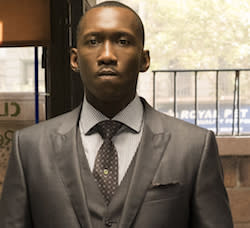
So that’s the thing about this. The Cottonmouth in the series is different than the Cottonmouth in the comic books. The variations that we make on the different characters are different than what they are in the comics, but at the same time we have the vibe and we’re going to go in some of these directions that if you’re a long-term reader of the comics might seem obvious. If you’re not, it’s OK too because we might end up with some of the same conclusions. We might change things, but our hope is to preserve the vibe of it.
DEADLINE: Yet, you’ve constructed the first season as a weave between being episodic and serialized. So is keeping the vibe helped or hindered by having the whole series drop in one season on one day on Netflix?
COKER: You know, going though my influences for Luke Cage, I thought about what the equivalent of binge watching is. Then I realized what it is, back in the day if Prince drops Sign of The Times or if Ice Cube comes out with Death Certificate or any of the early De La Soul records — the whole thing was when those records came out you shut everything down and you listened to the record over and over again to get the shape of the entire thing and not just the individual songs.
RelatedPrince Appreciation: There Will Never Be Another Like Him
DEADLINE: Concept albums were the future of television?
COKER: (laughs) Yes, Binge watching is the new equivalent to that because everyone builds up to “Oh my God, it’s coming out.” If networks are the cassette model, where you have one side but you have to physically take it out and flip it over, which is the midseason break. The Netflix model is CD where it all goes through. So what happens is it changes the formatting of how you listen to music.
So in thinking about how to structure that, you can’t structure a show in the traditional way in that format. The only way to keep it lively I found in thinking about it is to just think differently about the overarching structure in the first place. So my rule for that was that you look at each episode as an act.
DEADLINE: That’s showing your Southland and Ray Donovan skills pretty openly, isn’t it?
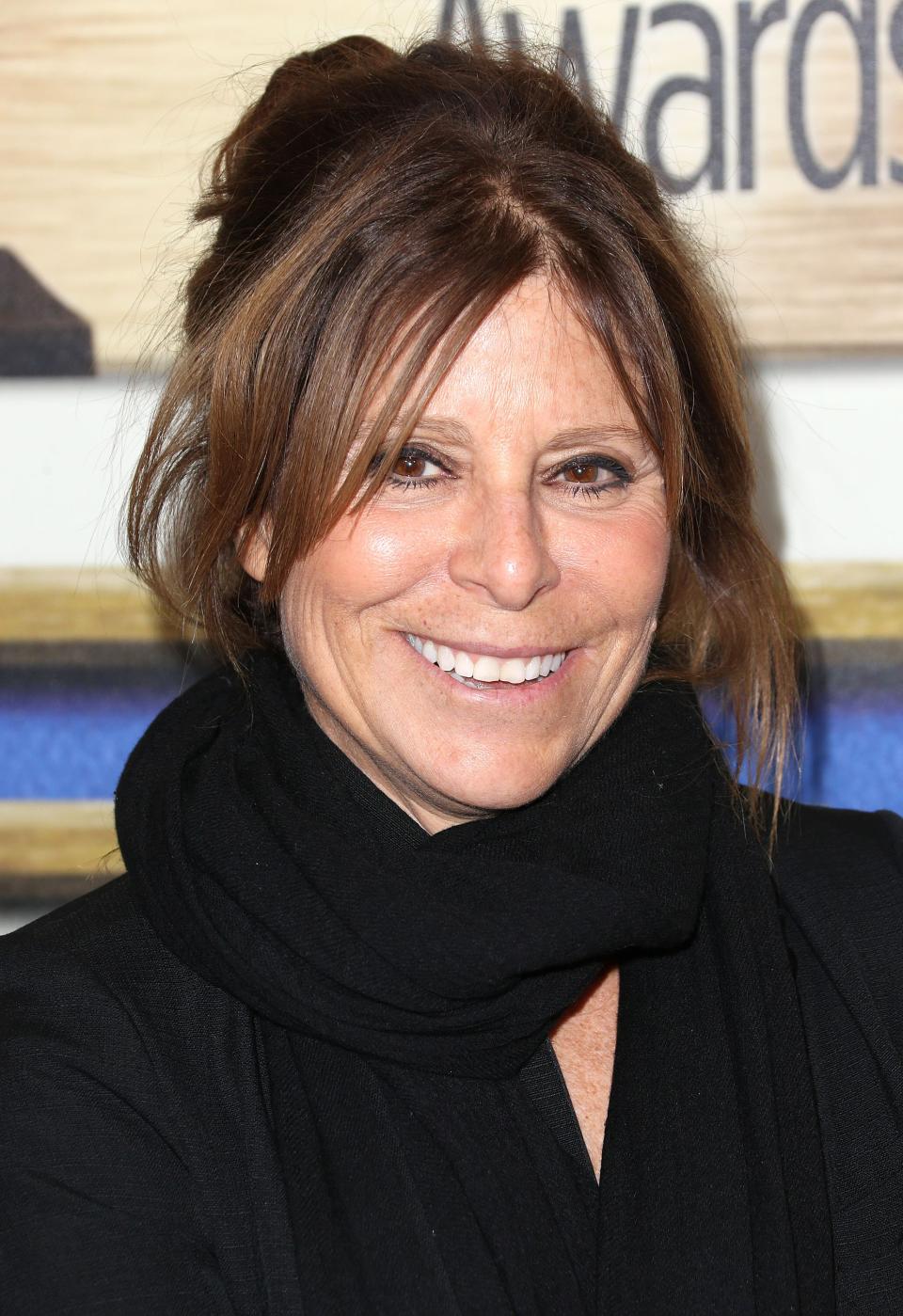
COKER: Well, my TV family is Mom, Dad, and crazy Uncle Chris. Mom is Ann Biderman. Dad is John Wells and crazy uncle Chris is Chris Chulack. Southland was really where I learned so much about drama. The most important lesson that I learned from Ann both on Southland and especially on Ray Donovan is that Anne would fight somebody in the street over character. She knows every single thing about any of the characters that she creates. Not just who they are and the plot points but what’s in their closet, what’s in their car, what they’re listening to in their car. She knows every character nuance and she thinks about it.
You’re thinking to yourself like why does any of it matter until you watch the episodes and then you realize that she’s building a world and any piece of that world that doesn’t fit will take you out of that world very quickly. That was the thing that Marvel really trusted me in letting me build this world and saying when you run up against certain elements that might go against Marvel tenants in terms of plot, in terms of our other shows, we’ll let you know, but anything else you’ve got to do your thing.
DEADLINE: Were there times when they said you can’t do that thing?
COKER: There were these moments where they were like who is Dapper Dan? Do we have to have him? And I’d say, Yes, because I know the reality of Harlem and the fact that this is a Harlem icon in the same way that the Marvel shows might have a Stan Lee cameo or there are certain things you might mention that the geeks are going to go crazy for. You put Dapper Dan into that scene it gives it a certain like oh-my-God to the people that are in Harlem. And that’s a part of Luke Cage’s world, so it should be there.
DEADLINE: In the Netflix and Marvel world it seems pretty certain there will be a Season 2 of Luke Cage. Was that part of your mapping out of Season 1?
COKER: I never take it for granted because this is an era where Martin Scorsese can get walking papers. So I will never, ever.
DEADLINE: But surely you’ve got a sense of where Luke goes from Season 1 and going into The Defenders?
COKER: Well, yeah but The Defenders is its own trip, Daredevil Season 3 is its own trip, so is Jessica Jones Season 2. The only thing I can worry about is my swimming pool and keeping the leaves out of my swimming pool. I can’t worry about what’s happened to my neighbors. Eventually, I’ll go over to their house and they’ll come over to my house, but I’ve got to work about what’s happening here.
My thing is that I know where I want to go for Season 2, knock on wood that we get it. What’s interesting is I know Luke’s arc. I know the things that I would love to explore with Alfre and with Theo and other things.
DEADLINE: You and Mike have been everywhere promoting the show, but what was it like having a strong bench with the likes of Mahershala, Aflie Woodward and Theo on it?
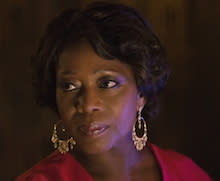
COKER: First, Mike is literally the coolest, most mellow guy ever. He takes being No. 1 on the call sheet seriously. And none of these actors, whether it’s Mike, whether it’s Mahershala, whether it’s Rosario, whether its Simone, whether it’s Alfre, whether it’s Theo, whether it’s Frank, none of them are divas and they’re not going to tolerate divas. So what happens is they set up an environment acting-wise and they all come ready to play.
It’s like you have a Golden State Warriors where you’re realizing that the offense that you’ve created for this team all of a sudden will not lose. So then you’re like we can do all type of sh*t that we weren’t even thinking about. We can go deep into our playbook and do exotic sh*t that we never even thought we could do because we have the players that are going to pull this off. So the freedom is like once you get to actors of that caliber doing this you can’t help but push yourself harder in terms of what we’re giving them and in terms or what they do with it and everybody brings their A-game.
DEADLINE: Talk about A-game, the music is top notch in Luke Cage, not just for hip-hop heads like me but across genres and textures in the series.
COKER: Here’s the whole thing: people say add hip-hop, add music. You can’t just add. I’m as specific with the hip-hop references as Martin Scorsese is with the rock ‘n’ roll references like in Casino or in Goodfellas. It’s that kind of texture.
Or we have other things that happen in different episodes. I don’t want to reveal too much as someone who loves it, but when you see the way that we use Method Man in the show in Episode 12, it’s one of the most electric moments we have in the whole show. My whole thing about that is that if we are going to have this notion of Marvel superheroes living in the real world then putting them in real-life scenarios and scenarios that would involve the community and showing what would that would really be like and imagining that and staying true to that was the whole simple notion of all of it.
DEADLINE: What was your favorite musical moment of the season?
COKER: Well, one of them is in that flashback in Episode 7 with the way we use John Lee Hooker’s “Bad Like Jesse James.” I’ve been trying to use that song for 20 years. To actually get to use that song and have it build up the way that it does and it builds up and coincides with the explosion that happens on screen and it’s so subtle. That’s the kind of stuff I geek out over.
DEADLINE: You said “one of.” What’s the top one?
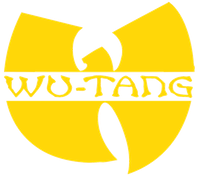
COKER: Well, it might be that moment with Luke Cage in the projects with Wu Tang playing and the energy that just having that song adds to what you’re already seeing. You take the music out he’s kicking people into walls and throwing them around. It’s cool, but when you add the song to it, it elevates the whole thing to this level where you’re like “Oh my God.” My hope is that Twitter effectively explodes around 3 o’clock in the morning on September 30 when people are bingeing and they get to that moment.
Related stories
'Luke Cage' Review: Mike Colter-Led Marvel Series Flexes Serious Muscle
'True Memoirs Of An International Assassin' Trailer: Kevin James Wrote The Book On Faux Killer
'Dear White People': Nia Long To Recur On Netflix Series
Get more from Deadline.com: Follow us on Twitter, Facebook, Newsletter


